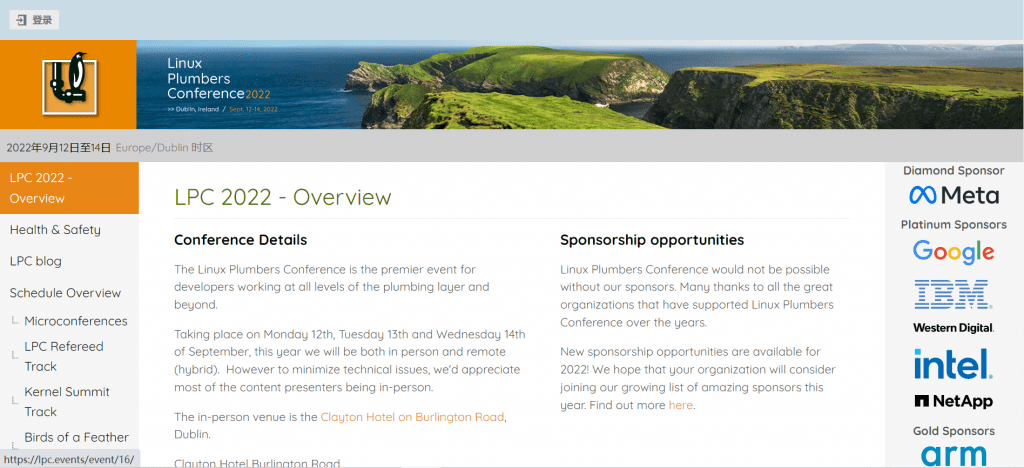existrecently held Linux Plumbers Conference 2022 at the conference,The editorial pair of foreign media ZDNet Linus Torvalds conducts an interview.Linus revealed in the interview,Before the conference, he was traveling and diving on a small island (6 days in total);Given the choice, he “would prefer to dive rather than attend meetings”.
According to Linus, althoughPut a lot of effort into the Linux kernel, but he’s not a workaholic.
Really, the reason I can still do it year after year is because I can get away from it at any time. But I won’t be away for long because I’ll get bored. The only time I felt it was long and exhausting was at the beginning of a merger. Even so, I try to focus on all the major things during the first week.
He pointed out that the real workaholic is Greg Kroah-Hartmann, the stable maintainer of the kernel. “I don’t know how he does it. I feel like he’s largely automated, but it’s endless and he’s doing it every week.”

As Linus once said, the pandemic has had little impact on Linux kernel development; because he, along with many of the top kernel maintainers, has been working from home for years. And for developers who weren’t originally working from home, they’re starting to like the model, too; Linus said he hopes these folks will continue to work from home.
Of course, there have been some changes in the kernel; as Linux kernel developer Jonathan Corbitt said before: “It’s no longer lonely Linux subsystem maintainers, but teams are often managing subsystems, and it works well”. Linus agrees, adding: “Some subsystems are still run by one person, but that’s less and less. It’s not so much a committee, it’s a group of three people taking turns.” The move reduces the burden on maintainers, which, as Corbit puts it, helps code maintainers be “happier and less cranky.”
Regarding Rust for Linux, Linus said in an interview that he is ready to see Rust entering the Linux kernel:
I thought we’d have it this time around (Linux kernel 6.0), but apparently, that didn’t happen. I wouldn’t assert that it will come in version 6.1 (released in October). However, it’s been around long enough that we just need to merge it because not merging it doesn’t help. And it will happen. Of course, some people still think we might have a problem, but if there is a problem two years from now, we can fix it at that point.
But the day after the interview Linux Kernel Maintainer SummitLinus has proposedAdd Rust to Linux Kernel 6.1. One reason he said he would like to see Rust in the kernel is to encourage new developers to start working on the kernel. “Rust is one of those things that I think might bring a new look, We’re getting old and gray.”
One of the reasons Rust hasn’t made its way into the kernel is that some developers are concerned that it will be cumbersome to use some non-standard Rust extensions to work in Linux. For example, in the new Rust Linux NVMe driver, more than 70 extensions to Rust are required to make it work. But Linus argues, “We’ve been using standard C’s exceptions for decades. I’ve been adamant that the standard in this area is garbage. And we’re going to ignore that standard because it’s wrong. So, in Rust The same will be true in terms of.” In his opinion, the reliability and stability of the Rust compiler are more important.
Linus also pointed out that 6.1 will be different compared to the “boring” 6.0 version. Even if Rust doesn’t get in, there will be major improvements; some of the oldest and most fundamental parts of the kernel, like printk(), will be improved.
In addition, Linus revealed that he has recently been using an Apple MacBook Air with an M2 processor and running Fedora Workstation 36 on it (not recommended); since the machine itself does not have a Fedora port for an ARM-64 M2 processor, So he made one himself. Currently, Linux on the M2 is mostly Asahi Linux for Mac, using the obscure Pacman package manager. But Linus himself didn’t like this very much:”Pacman!? What the hell!”
Of course, this thing isn’t perfect yet. For example, the code doesn’t support the M2 FPU, so Linus can’t make 3D graphics, but he also says he “doesn’t need games.” And that also means some of GNOME 40’s graphics effects, like screen dimming, won’t work, but Linus says, “I like it this way, it makes the display snappier. I’ll probably turn those off on my other machines as well.” .
There’s also the fact that Chrome doesn’t work on it yet; but the Chromium web browser works fine on it, so it’s not a problem; except that Linus needs to use his phone to transfer some of his passwords saved in the Chrome password manager.
But for the really important work – patching and compiling the Linux kernel, Linus says the M2 Air feels good to use;Even with just 16GB of RAM and a 256GB SSD, it works fine. Of course, his homemade Linux workstation is the most productive, but “I only took my Mac Air with me this trip. It’s got everything I need”;In general, Linus I am very satisfied.
#Linus #Torvalds #Air #running #Fedora #Workstation #bad
